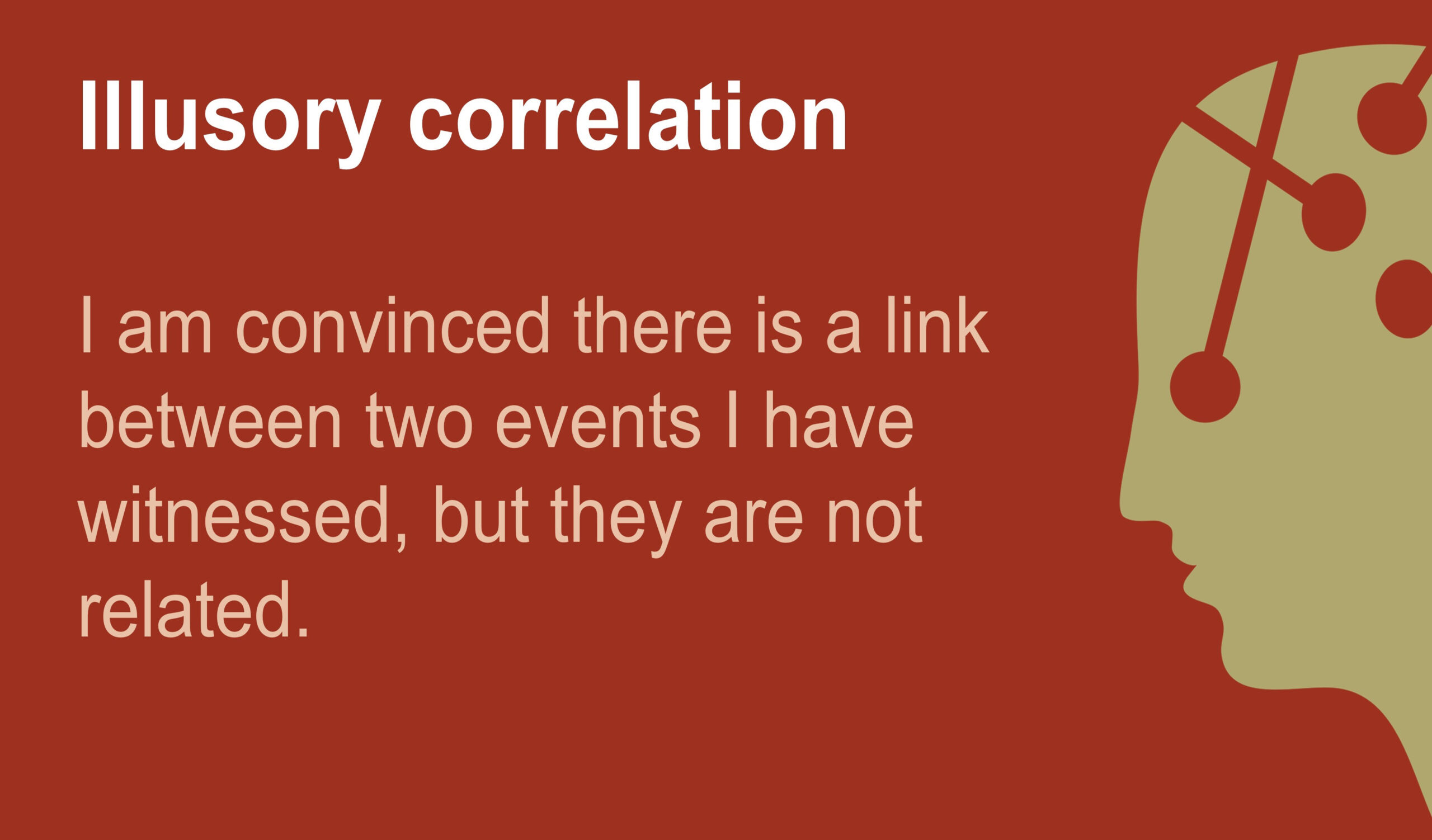Illusory correlation is a cognitive bias that occurs when individuals perceive a relationship or correlation between two unrelated events or variables, even when no such connection exists. People often mistakenly believe that two factors are linked because they seem to occur together, leading to incorrect judgments and decision-making.
Explanations:
Illusory correlation is connected to the human tendency to seek patterns and make sense of the world. People are prone to noticing coincidences and drawing connections between unrelated events, even when they are not causally related.
Examples:
Superstitions: A person may believe that wearing a specific item of clothing or performing a particular ritual is associated with better luck, even when no evidence supports this belief.
Health Beliefs: Someone might think that they get sick more often after eating a certain food, even if there is no scientific basis for the association.
Prejudice: People can develop stereotypes or biases by associating unrelated characteristics or behaviors with specific groups.
Solutions:
Critical Evaluation: Approach claims of correlation or causation with skepticism and consider alternative explanations.
Scientific Inquiry: Rely on scientific research and evidence to establish genuine correlations and causal relationships.
Diverse Perspectives: Seek input from others to challenge and validate your beliefs and perceptions, especially when dealing with potential illusory correlations.
Educational Efforts: Promote education and media literacy to help people discern genuine relationships from illusory correlations in the information they encounter.
Addressing the illusory correlation bias involves recognizing the inclination to perceive connections between unrelated events and actively seeking empirical evidence and diverse perspectives to evaluate the validity of these beliefs. By fostering critical thinking and a reliance on scientific evidence, individuals can reduce the impact of this cognitive bias on their judgments and decision-making.
